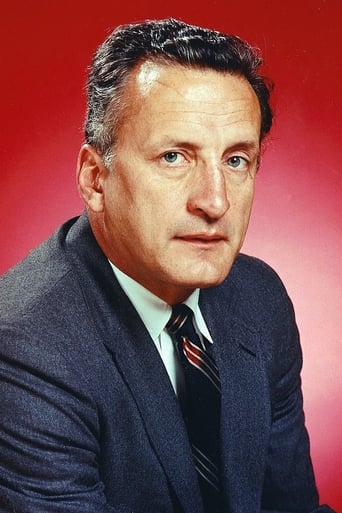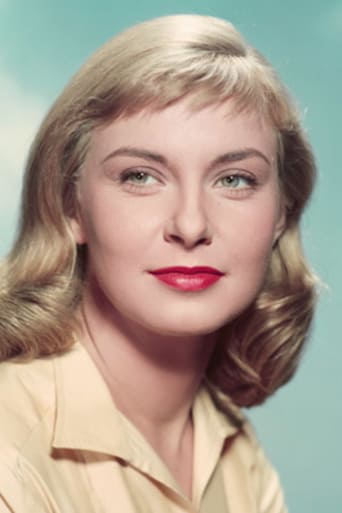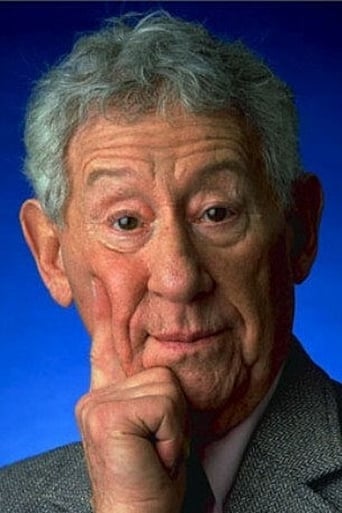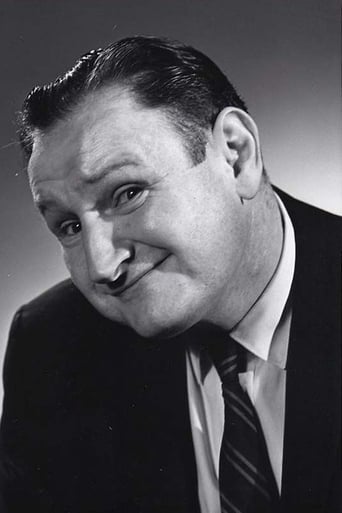tieman64
Anthony Harvey directs "They Might Be Giants". The plot? George C. Scott plays Justin Playfair, a successful lawyer whose wife has recently died. Unable to cope with this tragedy, Playfair imagines himself to be Sherlock Holmes, the legendary fictional detective. Via this Holmes persona, Playfair hopes to impose logic, order and rationality upon the world. For Playfair, all occurrences now have some "deeper meaning", some "hidden cause", and all "bad things" are the result of, not a malevolent cosmos, but Professor Moriarty, the arch villain of the Holmes novels.Early in the film, Playfair is introduced to Dr Mildred Watson (Joanne Woodward), a psychologist who hopes to cure the increasingly paranoid Playfair. Believing Mildred to be the Doctor Watson of the Sherlock Holmes novels, Playfair allows Mildred to accompany him on his many bizarre adventures. These adventures find Playfair bumbling about New York City, all in the hopes of deciphering Moriarty's "crime" and "motive". Mildred thinks Playfair is unconsciously seeking to find meaning in his wife's death, and she's right, but she's also absolutely wrong. That "Professor Moriarty" doesn't exist is almost irrelevant. Playfair is correct to conclude that there are "things" everywhere responsible for "bad stuff". That he personalises an uncaring, all-encompassing Nature doesn't necessarily make Playfair insane, but hyper-rational.Mildred, of course, thinks Playfair is nuts. She likens him to Don Quixote, the fictional character who repeatedly attacked windmills, believing them to be "monstrous giants". Of this, Playfair says: "Quixote thought every windmill was a giant. That's insane. But thinking that they might be...that's not. If we never looked at things and thought of what they might be, why, we'd all still be out there with the apes!" Playfair's speech thus functions as a survival plan; there MAY be giant monsters, and so he MUST test everyone and everything with a hammer.One such giant is Playfair's own brother (Lester Rawlins), a man who seeks to have Playfair killed. But the film is packed with other subtly sketched "giants". One couple, for example, live entirely indoors, nurturing indoor plants and crops because they "do not like what the outside world has become". A switchboard operator, the poor, the homeless, cops and various other men and women throughout the film, likewise live lives tormented by giants. Mildred, a lonely woman who escapes into psychoanalysis as a means of fleeing the world, is herself a woman living in the shadows of monsters. Everyone in the film is under some form of attack.Early in "Giants", Playfair admits that he likes Westerns. The genre, he explains, offers moral clarity, clear demarcations and a sense of order and justice which the universe simply doesn't allow. Imposing such "morality" and "law" upon the universe - getting it to "play fair" - becomes Playfair's obsession, but it's a futile quest, especially when nobody believes in the existence of that which he's slaying.How to get others to believe in, see and thus slay giants becomes the preoccupation of the film's final act. "Does justice ever lose?" Mildred asks, to which Playfair admits that it often does. "There are villains so big, they block the sunlight," he explains, before stating that standing up to such monsters is "what makes humans proud". The film then ends on a series of symbolic notes. Here Playfair assembles a ragtag community of believers and then battles police in a supermarket. This supermarket sequence, a middle finger to materialism and the status quo, was deleted by producers, but its message remains: "they" - the misfits who dare challenge their surroundings and stand up for others - "may be the real giants". The noble few. And so Playfair and Mildred find themselves standing before a shadowy tunnel as an "invisible monster" races toward him. "Stand closer to me, together in the light," Playfair tells Mildred, as the beast advances. But before our heroes are enveloped in blackness, consumed by the beast, a white light germinates behind Playfair's shoulder. Cooperation, love and belief, then, slays the beast. It's the old adage- when "I" becomes "we", mental illness becomes wellness."They Might Be Giants" initially appears to be a quirky 1960s/70s comedy in the vein of "A Thousand Clowns", "Being There" or "Harold and Maude". It's often dismissed as just a kooky comedy about "freedom" and "being true to yourself". In many ways, though, it's closer to the conspiracy thrillers of the 1970s ("Chinatown", "All the President's Men", "Parallax View", "Three Days of the Condor", "The Conversation", "Cutter's Way", "Network", "Invasion of the Body Snatchers" etc). This was, after-all, a period in which faith in family, society, authority, institutions and public figures plummeted, and in which the common man was seen to be at the mercy of a wide range of conspiratorial forces. Literature of the era was likewise deeply conspiratorial. "Anyone not paranoid must be crazy," Edward Abbey would say, sentiments echoed by novelists like Philip Dick ("Funny how paranoia often links up with reality"), William Burroughs ("Paranoia is just having the right information") and Joseph Heller ("Just because you're paranoid doesn't mean they aren't after you"). Which is not to say that Playfair isn't crazy, just that he's not necessarily wrong. Someone or something is always out to "get you", and it takes more than one man hunting invisible game to keep men from going insane. Endearingly acted by Scott and Woodward.8.9/10 – Minor masterpiece. See "Cutter's Way" and "A Thousand Clowns".
LCShackley
THEY MIGHT BE GIANTS starts out with a familiar plot: evil brother wants to have goofy brother committed so he can steal the family fortune. Goofy brother (Scott) believes he is Sherlock Holmes, so a psychiatrist (Woodard) is brought in to certify him for the asylum. Both actors deliver engaging, nuanced performances.It turns out that "Holmes" has a lot more savvy and insight than a crazy person should. He turns the table on the doctor (whose name, appropriately, is Watson) and starts to dissect her personality and problems. All this takes place while he's hunting around NYC to find "Moriarty," his arch-nemesis.This film could have gone in many interesting directions, and occasionally you think it's about to. There are some funny scenes, and some tender scenes, but what starts out to be a climax ends up as a fizzle, with one of those ambiguous endings that 70s directors loved so much. You start to think that Holmes's quirky clues might actually turn out to solve some important problem, but they just hit a dead end. And, no surprise, that's what happened to this movie at the box office.
fedor8
Skimming through the comments posted here about this film that deals with a genius paranoid, one might get their own paranoid notion that there was a conspiracy by Scott fans (or whomever) to present what is essentially an average movie as a humongous comedy classic. All the comments are full of nothing but praise. Mysterious almost. They Might Have Been On Giant Mushrooms when they saw the movie, no idea...TMBG has good production values. The lead duo, Scott and Woodward, are excellent and quite charismatic, managing to eke out the last drop out of the shoddy script. Additonally, we get some rather nice 70s New York scenery to look at. I was mesmerized by the brief view of Times Square at 0:37:15.However, the problem is very simple: TMBG is just not funny; maybe slightly amusing on a few occasions, all of which are early on. While the first half is solid, things totally disintegrate from the half-way mark onwards, complete with an expected cop-out ending. "Philosophical" fortune-cookie bull (that cliché quote about the heart and brain) cannot make up for a lack of imagination. Yeah, yeah... it's a love story, it's about loneliness, and about who is really insane in this world, what is really normal behaviour, and all that... It's neither new nor fascinating.The script STINKS. It is lazily written. The lowest point of the movie was also its perhaps most expensive part: the Loony-Toons-like supermarket brawl. Totally unfunny. If you expect sharp satire, wit, or even visual sight gags to laugh to, forget it. The humour is often moronic, too predictable, even cartoonish.Joanne Woodward looks terrific, a natural beauty. Pity that she plays a woman who considers herself to be homely, which is hogwash. Not all that believable, hence not funny. Only in Hollywood are we supposed to consider beautiful women ugly, and she-beasts like Laura Dern and Anjelica Huston as beauties! Maltin the Leonard even calls Woodward "tomboyish"; this, coming from a nerd who says that Julianne Moore has "radiant beauty"...






